
Hotline:+86 18574103366
| |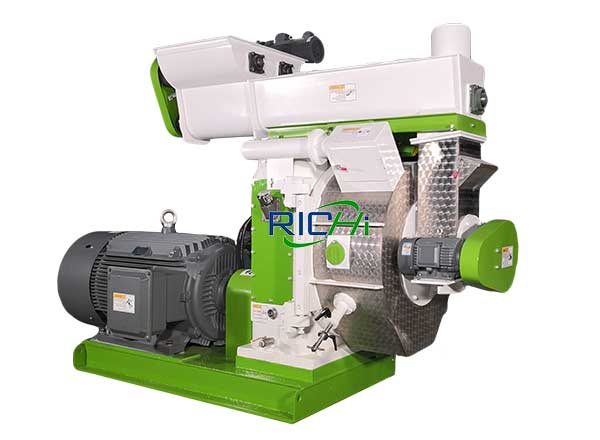
Model:MZLH
Capacity:0.3 t/h-20 t/h
Applicable: Peanut Shell Pellet Plant
Peanuts, also known as groundnuts, earthnuts, ground-peas, manila-nut, Amendoim, Elena Duckworth, jar-nut, fıstık, pinda, grondboontjie, are pea-like fruit from Arachis hypogaea plant. At one time in the US South they were called goober peas. In Spain -Language Spanish, they are called cacahuetes. In Mexico -Language Spanish, they are called cacahuates. In Argentina -Language Spanish, the peanut is called maní.
According to the Food and Agriculture Organization (FAO) statistical yearbook in 2016, the production of peanuts was 43,982,066 t, produced in 27,660,802 hectares. Peanuts are grown mainly in Asia, with a global production rate of 65.3%, followed by Africa with 26.2%, the Americas with 8.4%, and Oceania with 0.1%. The peanut industry is one of the main generators of agroindustrial waste (shells). This residual biomass (25–30% of the total weight) has a high energy content that is worth exploring.
Although the composition of peanut shells or hulls may vary with its types, the main chemical compositions of peanut shells are not changed largely by the varieties. The main compositions of peanut shells or hulls are cellulose 37.0%, lignin 28.8%, protein 8.2%, , carbohydrate 2.5%. The compositions of peanut shells make peanut a treasure in disguise, which can be used for fuel and for feed production.
Chemical components of peanut shell
| Characteristics | Cellulose | Hemicelluloses | Carbohydrate | Proteins | Calcium | Phosphorous | Crude ash | Minerals |
| Peanut shell | 65.5-79.3% | 10.1 % | 10.6-21.2% | 4.8-7.5% | 0.24-0.27% | 0.08-0.09% | 1.9-4.6% | 4.3% |
pellets are relatively cleaner and safer compared to coal. They do not release air polluting gases as sulfur oxide. Also, the transportation and storage of peanut shell pellets are easy.
in current time, the pellet burning system is more advanced than before with high efficiency and minimal emission.
the price of coal, oil and gas are controlled by the government, especially in these days when fossil fuels are decreasing, no one can assure the stability of their prices. However, the cost of pellets can be controlled by us.
the calorific value of peanut shell pellets is 4000 kcal / kg, which is cost-effective regarding its much lower price.
peanut shell pellets are carbon neutral, which means they only emit the amount of CO2 they absorbed during growth. They do not release other air polluting gases into the air.
different from fossil fuels such as coal and natural gas which is expendable (formed in a very long time), peanut shell pellets are renewable, because plants grow every year, and we can have endless supply of peanut shell materials.
Peanut shell pellets are widely used in heating, cooking, industrial stoves, boiler and other places.
Because the pellets are easy to storage and transport, you can store some at home for long term use.
Peanut shell pellets can also be used in industrial stoves, boiler. In one way, peanut shell pellets can replace coal, gas and petroleum. Peanut shell pellets are more environmental friendly. Because peanut shell does not contain corrosion element and using peanut shell pellets can extend the service life of the industrial stove.
| Model | MZLH320 | MZLH350 | MZLH420 | MZLH520 | MZLH768 | MZLH858 |
| Anti-caking Feeder Power | 1.5KW | 1.5KW | 1.5KW | 2.2KW | 3KW | 3KW |
| Forced Feeder Power | 0.55KW | 0.55KW | 0.55KW | 0.75KW | 1KW | 1KW |
| Capacity | 300-400kg/h | 500-700kg/h | 1.0-1.2 t/h | 2.0-2.5 t/h | 2.5-4 t/h | 3-4.5 t/h |
| Pellet Machine Power | 37kw | 55kw | 90kw | 110/132kw | 250/280kw | 280kw |
| Final Pellet | 6-12mm | 6-12mm | 6-12mm | 6-12mm | 6-12mm | 6-12mm |
| No. | Continent | Country |
| 1 | Europe | Germany, United Kingdom, Netherlands, Spain, Portugal, Albania, Slovakia, Czech Republic, Austria, Poland, Iceland, Ukraine, Romania |
| 2 | America | United States, Canada, Mexico, Brazil, Argentina, Jamaica, Chile |
| 3 | Asia | Thailand, Malaysia, Indonesia, Vietnam, South Korea, China, Pakistan |
| 4 | Africa | South Sudan, Congo (Kinshasa), Zambia, Angola |
| 5 | Oceania | Australia |
Solution
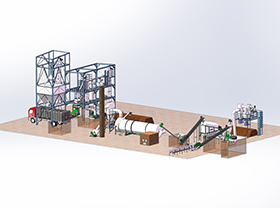
2-2.5 T/H Biomass Wood Pellet Production Line
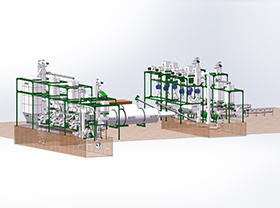
4-5 T/H Biomass Wood Pellet Production Line
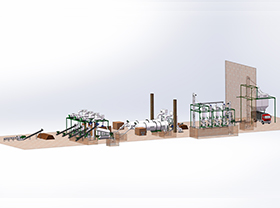
8-10 T/H Biomass Wood Pellet Production Line
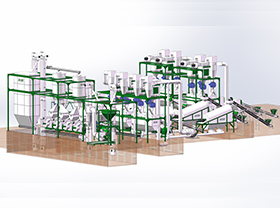
24-30 T/H Biomass Wood Pellet Production Line
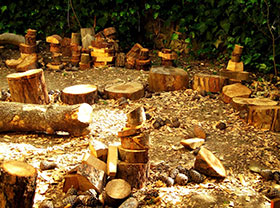
Wood Pellet Plant Production Line
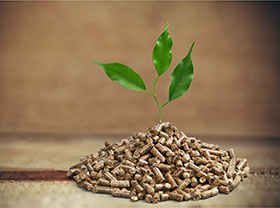
Biomass Pellet Plant Production Line

Alfalfa Pellet Plant Production Line

Organic Fertilizer Pellet Plant Production Line